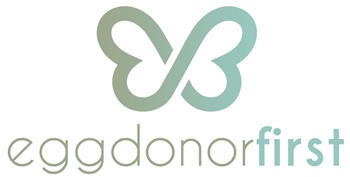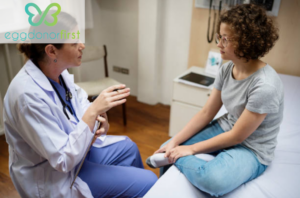Considering becoming an egg donor? It’s a rewarding journey that requires careful preparation. Egg donation is a selfless act where a healthy woman donates her eggs to help infertile couples or individuals build a family. This blog will guide you through the essential steps to prepare for your egg donation journey, both physically and mentally.

Physical Preparation
Medical Evaluation
The first step is a comprehensive medical evaluation. This typically includes a physical exam, blood tests (including blood type, infectious disease screening, and hormone levels), and potentially genetic testing. These screenings ensure the donor’s health and the safety of the intended parents and the future child.
Lifestyle Considerations
Maintaining a healthy lifestyle is crucial for optimal egg quality. This includes:
- Balanced Diet: Focus on a nutritious diet rich in fruits, vegetables, and whole grains.
- Regular Exercise: Engage in regular physical activity, such as walking, jogging, or swimming.
- Healthy Habits: Avoid smoking, limit alcohol consumption, and minimize caffeine intake. These lifestyle choices can significantly improve egg quality and overall health.
- Medication Regimen: The egg donation process typically involves taking medications to stimulate egg production. These medications are administered under the supervision of a fertility specialist. It’s crucial to adhere to the prescribed medication schedule and attend all scheduled appointments as directed.
Mental and Emotional Preparation
- Understanding the Process: Thoroughly research the egg donation process, including the procedures involved (egg retrieval, medication administration), potential risks, and the emotional implications.
- Setting Realistic Expectations: Understand that the egg donation process can vary, and there is no guarantee of successful egg retrieval. Setting realistic expectations can help manage any disappointment or anxiety.
- Building a Support System: Surround yourself with a strong support system of family, friends, or support groups for egg donors. Sharing your experiences with others who understand the unique aspects of this journey can provide emotional and practical support.
- Addressing Potential Concerns: It’s natural to experience a range of emotions throughout the egg donation process. You may experience anxiety, fear, or sadness. If you have any concerns or emotional challenges, don’t hesitate to seek support from a therapist or counselor specializing in infertility.
Practical Considerations
- Time Commitment: The egg donation process requires a significant time commitment. This includes attending medical appointments, administering medications, and potentially taking time off work for procedures and recovery.
- Financial Considerations: Consider the potential financial implications, such as time off work, travel expenses, and any out-of-pocket costs not covered by compensation.
- Choosing a Clinic: Research and carefully select a reputable fertility clinic with a strong track record in egg donation. Consider factors such as the clinic’s success rates, experience with egg donation, and patient reviews.
Conclusion
Preparing to become an egg donor is a journey that requires careful consideration and preparation. By prioritizing your physical and emotional well-being, following your doctor’s instructions, and building a strong support system, you can embark on this rewarding experience with confidence and peace of mind.





